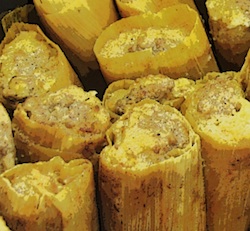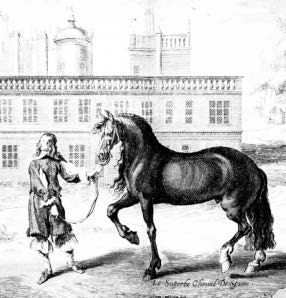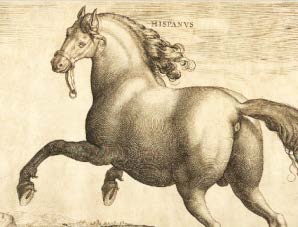

Early March, 1636
The fourth ring hadn't finished yet when Alyse Glazer caught the phone in a corner of her apron. "Howdy, this is Alyse . . ."
Claudette Green's voice over the line sounded vaguely scratchy. "Alyse, we've got a bit of a situation . . ."
"What's happening at church," Alyse glanced at her tall-case clock and shifted to a hip-shot lean against the counter where she'd been wrapping slender, corn-shuck bundles of tamales for the morning Farmer's Market, "at nueve y media Friday night?"
"I need transportation quick as I can find some," answered the pastor's wife. "Moving a family, there's a kerfuffle. Al says if you can't help you'll know who can."
"Kerfuffle? ¿Sobre qué?"
Claudette answered, "Broken axle on the movers' wagon. Might have been overloaded with four adults, nine kids and all their stuff."
"Stuff like bedrolls and spare clothes, or stuff like house furniture?"
Claudette's sigh gusted down the telephone line. "Yes."
"Well, I can find you a draft team easy enough," Alyse said. "Maybe a driver, too, but I haven't got a wagon the size you need."
"Do you know who would?" Claudette's voice sounded weary. "The movers and the family are both threatening lawsuits, right now. I doubt they'll agree to try again."
"Talk to Huddy Colborn."
"The housing secretary?"
"Approves all the moving vendors, doesn't he?"
"Hadn't heard about that."
Alyse's snort had no feminine delicacy about it. "We do for one another, so Dr. Green's not burnin' daylight at the housing office. Huddy's had his hands full over spats like those Spitzenbergers claimin' the Hilltop Moving men deliberately wrecked all their portraits of saints. Nadie quiere believe accidents happen."
Contemplating the hullabaloo that must have landed Huddy Colborn with, Mrs. Green replied, "We have enough troubles without making them for each other, don't we?"
"Now," Alyse murmured, "si sólo people would believe that."
"People believe what they want, oftener than they ought," Mrs. Green commiserated. "Have you talked to Powell?"
"He sent me a letter full of orders. Sell all my trinkets and whatever's left of the livestock. He'll manage the money," Alyse gritted her teeth. "Make us a better life in the here and now, leave all that Texas and Mexico malarkey behind. Like I can just get shut of everything at a yard sale."
"That," replied Claudette, "won't do. You two need to talk, face to face."
"Sí," Alyse said wearily. "But I can't take home with me, so he sees mi trabajo to get us here. . . . That's another thing. I'm not sure he's willing to keep our foster kids."
"Surely," Claudette said sharply, "Powell wouldn't renege on that commitment?"
"I don't know," Alyse answered. "He did want to help Marty when his wife died."
Claudette sighed. "He spent a lot of time with Marty in prayer for Brida, and more after we lost her. Powell found him that job with Chip Jenkins so he could stay near his kids. Then that nasty sawmill accident . . . Al and I spoke to Powell by radio the night of Marty's funeral. He said if we thought you could handle the kids he'd adopt 'em both."
"Recuerdo. He about made friends with Marty at choir practice, but now . . . he writes as if he's gone through as many changes as I have, though," Alyse said. "Maybe you can look at his letter, Claudette. I don't want to bother Dr. Green."
Claudette Green made a sympathetic noise. "Does Powell really not understand how hard you've been working, all these years?"
"I don't know," Alyse said. "What I do know is, I really, really don't want to start over from scratch someplace else, now. The house is paid for. I made a bit of money out of all those Croat raiders' horses, and Luis is as much help as I could want with the kids and the house. If I had steady money coming in, maybe Powell would reconsider."
"It's hard, but you know the Bible says a man must be head of his household, Alyse," the pastor's wife reminded her.
"Says he's supposed to cherish his wife the way Christ cherishes the church, too," the tired Texan answered with asperity. "Powell's not reading those verses. No entiendo nada. ¿Pero este? ¡Este no está ninguno bueno en absoluto - este no ayuda a nadie, este no hace nada que vale la pena!"
The spate of Spanish left Mrs. Green behind as readily as it always had Powell. "Alyse!"
"I'm sorry, Claudette. I'm tired. I'm aggravated. I fall back on Spanish when I get upset." She sighed. "I don't understand Powell's thinking. What he's demanding isn't going to help anybody. It's not going to be worth the trouble."
"That's an understandable reaction," the pastor's wife said.
Silence stretched.
"Well, anyway, you called me about some horses and a wagon. I could probably have a team at the church before midnight, maybe scare up a freight sledge from Sundremda. But if you really need a wagon . . ."
"I really need a wagon," Claudette agreed. "I'll call up Huddy . . . no, I won't, at a quarter after ten with no real emergency. All the family members are safe at the church for tonight. I'll arrange a wagon through the Housing Office in the morning. Do you mind taking a team to pick it up?"
"I may bring Taylor with me. Luis can watch the babies while he does his homework," Alyse said. "I've got to finish up the tamales tonight to pack for Greta—remember Birdie's partner's wife?"
"That strawberry blonde who drives just like Hans Richter?" Claudette chuckled.
"It does make a person pack careful," Alyse agreed, chuckling herself. "I'll talk to you mañana, then?"
"I'll call you soon as I know what we need," Mrs. Green agreed. "Thanks, Alyse."
 "De nada," Alyse answered. She hung up the phone and went back to her tamales, spooning out spicy shredded-meat filling into masa spread across corn husks laden with a dough made of cornmeal and acorn flour. Three tablespoons of masa, then two tablespoons of filling, tuck, roll and tie each husk, stack them in the steamer's racks. Not for the first time, she blessed her grandmother's taste in wedding gifts.
"De nada," Alyse answered. She hung up the phone and went back to her tamales, spooning out spicy shredded-meat filling into masa spread across corn husks laden with a dough made of cornmeal and acorn flour. Three tablespoons of masa, then two tablespoons of filling, tuck, roll and tie each husk, stack them in the steamer's racks. Not for the first time, she blessed her grandmother's taste in wedding gifts.
Abuela Adalia's last care package to Alyse's West Virginia address hadn't actually reached her until the Tuesday after the Ring of Fire fell; she'd gotten the package notice on Monday. So many years had passed since she'd opened that box to find another pristine but secondhand South Texas Junior League cookbook swaddled in a silk bandanna tucked among nearly a hundred packets of hand-labeled seeds; many manila envelopes also contained Abuela's hand-ground spice blends, with her slightly listing copperplate handwriting explaining how to recreate them on the faces.
"Dios bendice a la abuela," Alyse murmured. She unfolded the onion paper air-weight pages of her grandmother's chatty letter again, wishing with all her heart that her husband's correspondence echoed the comfort and strength in her grandmother's letters. She read the account of the tamalada her great-grandmother had helped cook for during the big Viva Kennedy-Viva Johnson gathering another time, though she knew the words by heart long since; Adelia's voice seemed to fill the room, reminding her that las problemas de la vida only seem impossible until people work together solving them.
For the tenth time since she'd gotten it in the morning mail, she smoothed Powell's latest missive from his office over the knee of her faded jeans. The clock ticked softly as she tried to read.
"I know," he wrote, "you think you're doing the best you can, but . . ." For the eleventh time tears filled her eyes before she could finish reading the thing, and she crumpled it in her fist. She sat in the old wooden kitchen rocker, still, head bowed, until she heard a patter of footsteps cross the front porch.
"Luis?"
"Señora," the boy replied. "Yes, I'm home. Is everything okay?"
She nodded. "I'm almost done with tomorrow's tamales. Want something to eat?"
The teen shook his head. "I had the last of the beans and cornbread before I left for class. I needed to go in early this evening. I had to buy that special eraser and shield for the drafting test."
She clucked her tongue. "I'm glad. I need your help first thing tomorrow. I'm taking a team to help at the church, but I don't know where the wagon's coming from yet."
"Okay," Luis said. "Will Greta be picking up the tamales again?"
"I'll pack them tonight," she answered. "Can you keep an eye on the younger kids while you're studying tomorrow?"
He leaned his head sideways. "Can we have tamales for breakfast?"
"There should be enough. I made twenty dozen this time. Birdie turned out to be right about the corn crop getting better."
"Mucho gusto," the boy said with a grin.
Late April 1635
"I'm told you're a horse whisperer." Slim, dusty, the stranger propped a trail-worn boot on the bottom rail of Alyse Ballantine Glazer's pasture fence. "¿Verdadero, Señora Glazer?"
"I'm Alyse Glazer. But I'm no horse whisperer; I just come from Texas," the sturdily-built woman astride the trim bay mare replied. "My family are Kiñenos and Kenedeños. We've worked for the King and Kennedy ranches more than a hundred years."
"La mujer mirando," he sounded relieved. "Ella quién trabaja milagros con caballos."
"Why are you looking for a woman who works miracles with horses?" Alyse reined around to face her visitor. She hadn't heard so much Spanish since her wedding day; the musical syllables spirited her, for a moment, back to a brushy pasture under South Texas' far warmer sun. She could almost taste hibiscus and the not-so-distant Gulf of Mexico on the Thuringian breeze.
"Señor Chad Jenkins," ticking off names, her visitor folded in fingers, "Farmer Birdie Newhouse of Sundremda, and a Marine llamen Sergeant O'Keefe whom I met in Ciudad Magdeburg."
Chad and Birdie she'd worked with; the sergeant she remembered as one of the few Marines not a danger to themselves around trained warhorses." I know them. Who are you?"
A flashing grin lit his honey-colored eyes." Pedro Sebastian Rafael de Treviño, a sus ordenes."
"What puts Pedro Sebastian Rafael de Treviño at my service?" Alyse unsaddled, her morning's work irreparably interrupted. She swapped the mare a half-moon of dried apple for the bridle-bit. "Fair warning. All that fancy business-school knowhow Grantville's just soppin' with—that passed me by entirely."
Rafael shrugged. "I'm not looking for a woman of business. I'm looking for one to train horses so they behave as if by magic."
"At your service," Alyse said, grinning in turn. "Working the brasada, our horses had to neck-rein and ground-tie; that's how I train mine."
"Muy bien," he said. "You are the woman whose help I need."
Alyse put her tack up on the railing as the mare ambled out to pasture. "If the Ring of Fire'd hit twenty-one yards yonder way, I couldn't help you for all the tamales in the world."
"What do . . . tamales . . . have to do with horses?"
"Tamales pay my rent."
By the look on his face, he still didn't understand. Sixty-three feet west, the Ring's fall would've included the MacCraes' house, professors Dale, Norma, and all. Much as she'd liked her neighbors, Alyse knew they'd fare better up-time. "Ring cut off the up-time owners' house. West Virginia County leases me this land, same price they paid in yearly taxes. Comes to sixteen dozen tamales every week at the Farmer's Market."
He still sounded puzzled. "Surely, whatever those may be, you don't need so much pasture for so few animals."
"They come with the lease."
"¿Ellos qué?" He gave his head a shake.
Now Alyse smiled outright. " 'Til Powell joined the army, we looked after what stock the Ring brought through. Fifteen Rambouillets, a dozen mohair goats, a nice little Welsh mare, a few geese, ducks and chickens and those BLM burros Dale's grandkids adopted. Flo Richards bought Norma's Rambouillets, but I kept the rest. Didn't need the whole pasture 'til after the Croat raid."
"He oído," Rafael said. "Richelieu paid a cavalry force to destroy your town and school, I have been told. Is that so?"
Alyse nodded. "Come nigh takin' out the school. Not the town."
"You were here," Rafael sounded shocked. "the day of the raid?"
"Not right here," she said. "Evacuated downtown, like everybody but Irene Flannery. Vieja pobrecita—rest in peace. Made a sure-'nough bloody mess, from Dan Frost's plaza matanza clean out to the high school campus. Folks building nations don't have time for cleanin' up after battles, I reckon. 'Specially not carnage like Gretchen Higgins's busload of wannabe-gunfighters spread all over creation."
By then his eyes had stopped being saucer-sized. "¿Qué hizo?"
"What any sensible person would've done. Croats didn't need the horses anymore," Alyse said. "Swedes didn't want 'em all. Nobody else seemed interested in 'em either, so I commenced to gatherin' up strays."
Rafael's expression showed sharp interest. "Warhorses? How many?"
Alyse felt her face harden. "Gretchen Higgins and her trigger-happy idiots shot 'em all to pieces. Must've been four hundred head to start with. I saved about a third of that remuda."
"Cavalry chargers?"
"Not many. Looked like the Croat pendejos stole remounts on the way. Even Grantville PD couldn't trace 'em back to their rightful owners," Alyse shook her head. "I did ask."
"And you have these horses still?"
"Not anymore," Alyse answered. "Along come Chad Jenkins needing draft teams to haul logs, so I fixed him up the gentlest ones. He paid half in peeled poles, or I wouldn't have pens or sheds. Duke Hudson bought a bunch for his Marines, 'n' paid me extra to teach his greenhorns not to let their own mounts kill 'em."
 "That must have been quite a schooling," Rafael murmured. "A charger is as dangerous as any man, correctly trained. More so than many."
"That must have been quite a schooling," Rafael murmured. "A charger is as dangerous as any man, correctly trained. More so than many."
She raised her shoulders in a shrug. "Owin' to how they're handled. Cap'n Lennox bought my last few real trained cavalry horses for his embassy remount. I got a letter back—some cat named Ruy took a shine to a big liver chestnut Friesian I sold Lennox. Rattlesnake-mean, looked almost Andalusian. Lennox wants another'n just like it. That's liable to take awhile. But I've got four of his foals in the pasture so far."
Rafael took his foot off the fence rail. "You raise horses here?"
"I will, if it'll make a little money. This sorta-livery business isn't very steady income, but I'd rather be here than emptyin' bedpans or scrubbin' floors in town. It beats starvin'. Speakin' of starvin', tengo hambre. Come on into the house. There's coffee." A moment later the heels of her boots rang across the wooden porch and the rock house's front screen door groaned gently under her hand. She watched the stranger watch her toe off her buckaroo work boots to leave on the rag rug just inside. "I'll pour, if you'll give me a couple minutes."
She peeked into the far bedroom on her way, where a black-haired teen sat, head bent over a lapful of homework as a scatter of toddlers and a cradled infant slept nearby. "Okay, Luis?"
"Alles en okay," the youth replied. Alyce ran a mother's gaze over the room anyhow. Neat as a pin, just like the children he watched while Alyce worked outside. "Greta says she'll stop back with your money after the market closes."
"Bueno," Alyse said. Ablutions tended, she headed to her kitchen. In the living room, she noticed as she passed, Rafael stood looking around, flat-crowned lefferto-style hat slung down his back by its storm thong. He had gray-streaked bronze-dark hair, and a light-olive complexion over high cheekbones and weather-creased wide-set eyes. "Quite a home you have, Señora."
"Call me Alyse." She assembled coffee on a handmade mesquite tray: heavy mugs shaped like barrels, a silver pitcher and a hollow oval of dark amber with a grater, then a wicker basket lined with a clean kitchen towel, pastries nestled in its folds. "Gracias. Our mortgage with the university's credit union stayed up-time; I just pay for what upkeep I can't do myself and taxes."
She poured, handing off caramel-colored liquid.
Rafael sipped; his eyes went huge and round. "¿Qué es esto?"
"What that is, is cafe con leche–coffee and milk with Mexican piloncillo," Alyse said, offering the basket. He picked up a pastry the size of an emu egg. "Goes good with pumpkin empanadas."
"Mmm . . . if you were to sell these in the market . . ." He licked, little-kid-fashion, crumbs from his fingertips and mustache, making Alyse want to laugh aloud. She managed to avoid doing so by answering, "I do, when I can. Learned to make 'em out of one of Abuela's wedding presents."
"Your grandmother must have been a formidable woman," he said.
"Not the only one—after World War Two and the Korean war, in South Texas the American G.I. Forum Women's Auxiliary raised money with tamaladas. Abuela bought me copies of about every Junior League cookbook from Corpus Christi to El Paso, then hand-wrote recipes in the blank pages at the back for me. When we got cheap cornmeal back, I could really go to town."
"Cornmeal?"
"Harina de maiz," she explained. "For the dough that makes tortillas and tamales. Birdie said this year's crop'd be better than the last one, and I'm glad. I've been stretching out the masa with acorn meal so long, I'm not sure I'd recognize real tortillas." She reached to refill his cup, and ran the amber oval down the grater, shaving coarse brown sugar into the coffee. "It'll be good to have enchiladas and burritos again, too. I put in a garden where Powell's lawn used to be."
"¿Él césped–this grass with no flowers, no fruit, nothing for the table? ¡Qué basura—such waste of water, and work!" Rafael, finishing his third cup with alacrity, looked scandalized. His expression made Alyse shake her head.
"Some folks like it. For me, the garden's better. Ron Stone's apprentice crew cleans out my goats' and chickens' pens every week; they built me some nice raised planters last winter. Ron's stepmother wrote that contract; I furnish high-ammonia manure for Lothlorien's chemical work. They pick it up, pay two-thirds in cash, and furnish me incidental labor for the rest. Birdie's co-op does the same with my horses' stalls. It's not just my sweat equity accumulated here—it's a balance between home and family and neighbors we all need, to keep us going."
Rafael leaned forward over the coffee table. "¿Ayuda alguien?"
"I do have some help–the contract work, and Powell when he's home," she affirmed. "Mostly Luis. Young'un's a quick study, and a good hand with little kids. Boards here for his evening classes at the Technical College. We can just about afford one another."
Now Rafael looked somber. "Señora, I wanted to make you an offer to move to Augsburg, come to work for our company there. I wanted to pay you well to train our horses and teach our riders to care for them. I can't make you that offer now."
"I couldn't say yes if you did, right now," Alyse replied. She didn't add how building her sweat equity for the past four years had helped her not to worry about Powell, let alone how long before his next leave. Instead she stretched into standing, gathering up the tray and taking the dishes to the sink for later washing.
"Permitame otra oferta. Could we send horses and their riders here, to learn to work together?"
"Owin' to what you want 'em trained for," she said judiciously, "maybe. But I have to tell you I'm not in any shape to house or feed your company's hands."
 "Los mesanjeros especiales," Rafael said, sounding proud. "We will have a service of the couriers, the hub-and-spoke system, the special messengers, the special horses; we will have the stations and the relays. Si, radio takes important news to everyone. Thurn and Taxis handle mail very well, yes—where they are. We want to build a service like that, un Correos, too. But for things fragile or perishable, or that must be taken quickly, there will be our business. Our investor, H.A. Burston, tells us in the world he came from this is called Fed-Ex."
"Los mesanjeros especiales," Rafael said, sounding proud. "We will have a service of the couriers, the hub-and-spoke system, the special messengers, the special horses; we will have the stations and the relays. Si, radio takes important news to everyone. Thurn and Taxis handle mail very well, yes—where they are. We want to build a service like that, un Correos, too. But for things fragile or perishable, or that must be taken quickly, there will be our business. Our investor, H.A. Burston, tells us in the world he came from this is called Fed-Ex."
Alyse wondered how Powell would feel about that.
****